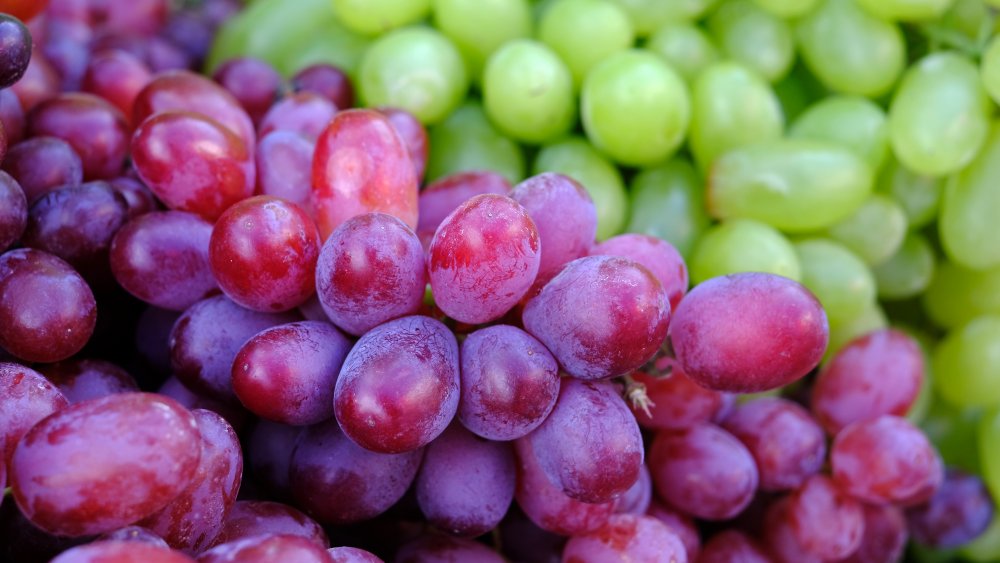What Happens When You Eat Too Many Grapes?
Grapes seem like such a healthy food, don't they? How could they possibly have any unpleasant side effects? Except, of course, when they've been transformed into a tasty fermented beverage, a condition wherein they still have certain health benefits, but also some well-known drawbacks such as hangovers and bad decisions. Grapes au naturel, however — what could be a more innocent snack than that? They'll deliver a mere 100 calories or so per cup, with less than a quarter gram of fat and 27 grams of carbs. While grapes are probably going to be on your naughty list if you're a hardcore keto dieter, they are actually allowed on Whole 30.
That being said, however, grapes, for all their health benefits (it is said they can help protect against certain types of cancer, eye problems, and cardiovascular disease, as well as being a good source of fiber, potassium, and a number of vitamins and minerals) do have their downside. Some negative side effects of grape over-consumption may include stomach upset, exposure to pesticides, and interference with certain types of medications.
The trouble with grapes
Another potential issue is that grapes contain high levels of fructose, a naturally-occurring sugar that leads the body to produce a lot of natural (but probably unwanted) gas. Grapes also are high in tannins, which, in excess, can cause both nausea and diarrhea. Also, don't forget that if you eat conventional grapes (as opposed to organic) and don't clean them thoroughly before eating, you're going to be chomping down on pesticides, which is another good reason to limit your intake.
Certain medical conditions may actually make excess grape consumption quite dangerous (via Medical News Today). The high levels of potassium found in grapes could be unsafe for anyone taking beta blockers, as this medication tends to increase potassium levels on its own. Resveratrol, an antioxidant found in the skin of red grapes and thought to protect against several chronic diseases and conditions, can act as an anticoagulant, thus posing a danger to anyone taking blood-thinning drugs. And anyone whose kidneys are not functioning properly may be advised to avoid foods such as grapes, since when kidneys are unable to cleanse the bloodstream of excess potassium, it could build up to potentially toxic levels.
So should we avoid grapes altogether? No, you can nosh away on these delicious fruits unless you're allergic or have been advised to do so by a doctor. Grapes, in their raw as well as fermented states, are just one of those treats that are best enjoyed in moderation.

